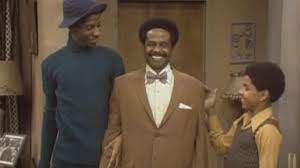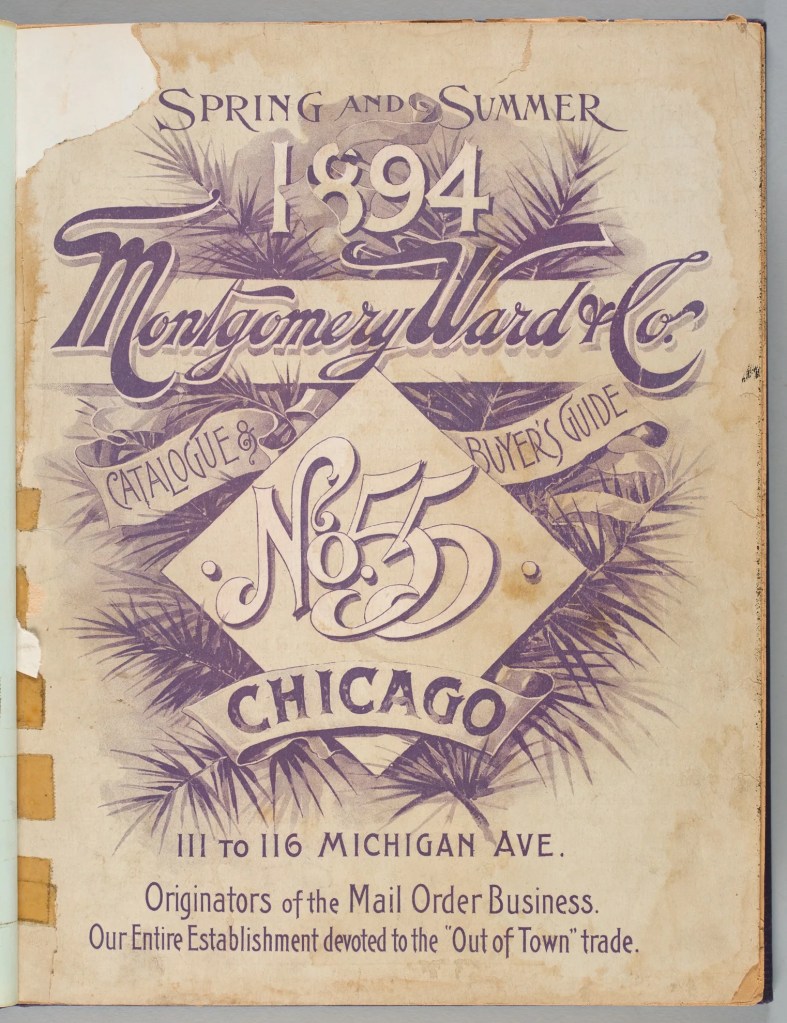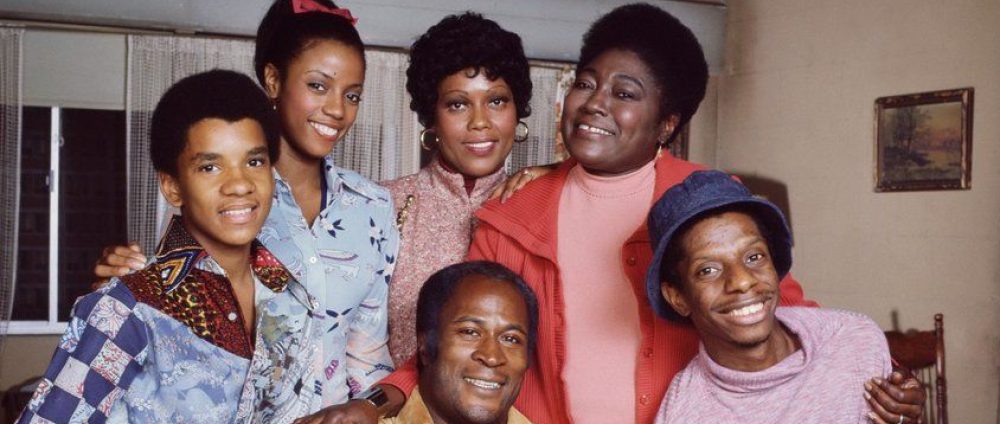
As the episode opens, Florida is at her sewing machine, working on a new slipcover for the living room sofa. The whole household is abuzz as the family prepares their home for entry in a contest for the most beautiful apartment in the building: James is building a stand for Florida’s plants, Thelma is cleaning her room (including wiping her lipstick prints from her autographed picture of Stevie Wonder), and Willona adds to the ambience with the gift of a bowl of goldfish. Although Florida is confident that she will win, James cautions her about getting her hopes up, telling her, “It ain’t what you do, but who you know.”

Florida’s chances for winning the coveted top prize are rocked when Michael comes home with local drunk Ned the Wino, asking if the “tired, hungry brother [with] no place to go” could stay with the family for a few days. Florida eventually relents and James, J.J., and Michael go to work making Ned presentable (including feeding him, bathing him, and dressing him in James’s clothes). By the time the three-person committee arrives, a grinning, practically catatonic Ned is propped up on the sofa and passed off as James’s cousin. Following the committee’s inspection of the apartment, the chairperson, Mrs. Vinson, declares that the Evans apartment is the winner. Minutes later, Mrs. Vincent returns to disclose that the family won primarily because of “the way you cleaned up Ned,” and announces that Ned is her husband. The episode ends with Florida quipping, “Now, I not only got pull in the projects but, thanks to Ned, I also got connections in the gutter.”

There are a lot of laughs in this episode, with a sense of gravity provided by Michael’s “Good Samaritan” act of bringing Ned in the family home in an effort to help him get sober. Michael’s belief that Ned’s life can be turned around after staying a few days with his family is a sweet and touching notion, and his way of thinking is a testament to his character and the way he was raised: “All he needs is someone to help him,” Michael says. “If we don’t help him out, who will?” It’s also interesting that Florida’s initial, knee-jerk reaction is focused solely on trying to win the contest and the possibility that Ned will jeopardize her chances. It’s not long, though, before she’s convinced by Michael’s heartfelt pleas and her own Christian beliefs to reverse her stance.
Ironically, James’s declaration about only getting ahead because of “who you know” proves to be a self-fulfilling prophecy, as Florida actually doesn’t win the contest on her merit. Instead, she wins because the family cleaned up Ned to the point where his wife was willing to allow him back in their home. It seems a little curious then, that Florida is so proud of her first-place victory, since, if not for Ned, she might not have won.

Pop Culture References:
The Secret Life of Plants
Much is made of Florida’s plants, including her insistence that plants are sensitive and will enjoy having their “own little home” on the stand that James built, and that plants understand communication from humans. She said she got this information from “a plant book,” which was likely The Secret Life of Plants, a best-selling book published in 1973 that focused on the physical, emotional, and spiritual relations between plants and man. After its release, it became popular for people to talk to their plants to keep them happy and help them grow.
Montgomery Ward

Discussing her competition in the contest, Florida remarks that one of the entrants has a “genuine antique umbrella stand” from Montgomery Ward. Founded in Chicago in 1872 by Aaron Montgomery Ward, the store was the first successful mail order retail company. Ward originally worked for the store that would later become Marshall Field & Co.; he left that company to open his mail order business, selling everything from clothes to steam engines. The company also invented the promise of “satisfaction guaranteed or your money back.” In 1926, the company began opening retail stores (following the lead of its main competitor, Sears, Roebuck & Co.), and five years later, there were more than 500 Montgomery Ward stores nationwide. (Incidentally, in 1939, an advertising writer for the company wrote “Rudolph the Red-Nosed Reindeer” as an illustrated poem for distribution to children who visited the company’s Santa Claus.) The store had more than 70,000 employees across the country by the early 1940s, but it grew more slowly in the second half of the century, and in 1974 – the year that this episode first aired – the company was purchased by the Mobil Oil Corp. In 2000, it was announced that the company was closing all of its stores and the last Montgomery Ward store closed the following year.
Ozzie and Harriet
The goldfish that Willona gives to Florida were named Ozzie and Harriet, after the stars of the popular long-running radio and television series. More about the series can be found in the post on Season One, Episode Three: Too Old Blues.
Streaking
As James and his sons prepare to bathe Ned, J.J. jokes that they could just remove all of his clothes and run him through the car wash. “Nobody will notice,” he adds. “They’ll just think he’s streaking.” Streaking – or running naked through a public place – first became a phenomenon in the U.S. around 1973. It began on college campuses; in June 1973, a streaking trend was reported at Michigan State University, and in December of that year, Time magazine called streaking a “growing Los Angeles-area fad” that was increasing among college students as well as other groups. In February 1974, the phenomenon was labeled a “streaking epidemic” in the press, and on April 2, 1974 – just a few weeks before the airing of this Good Times episode – one of the best-known incidents took place on live television during the Academy Awards ceremony. Actor David Niven was in the process of presenting an award when a naked, mustachioed man ran across the stage and flashed a peace sign. “Well, ladies and gentlemen, that was almost bound to happen,” Niven quipped. “But isn’t it fascinating to think that probably the only laugh that man will get will ever get in his life is by stripping off his clothes and showing off his shortcomings?” (A clip of the streaking incident at the Oscars can be viewed below.)
Guest Stars:
Raymond Allen (Ned the Wino)

After references to his character in a few previous episodes, Ned the Wino finally makes his debut here. Played by Raymond Allen, he would go on to appear in six other episodes in the series during seasons one through four. Allen was born in Kansas City, Missouri, on March 5, 1929, one of 12 siblings. In addition to guest spots on a number of television series, Allen had recurring roles on Sanford and Son, where he played Aunt Esther’s long-suffering husband Woody, and Starsky and Hutch, where he was mechanic Merle the Earl. He also reprised his role as Woody on the Sanford and Son spinoff series, The Sanford Arms. He retired from acting in the mid-1980s due to health issues; his last acting performance was in a 1985 made-for-TV movie called Gus Brown and the Midnight Brewster, co-written by Scoey Mitchell and starring John Schneider and Ron Glass. Allen had three children, one of which – Ta-Ronce Allen – played Michael’s girlfriend Yvonne on two episodes of Good Times. Allen died of respiratory issues in August 2020 at the age of 91.
Committee Members: Robin Braxton (Mrs. Vinson), Simeon Holloway (Mr. Johnson), Betty Cole (Mrs. Hines)

Robin Braxton can be seen in several TV series including Police Woman and The Jeffersons, and films including Blue Thunder (1983), starring Roy Scheider. Gary, Indiana, native Simeon Holloway played a watchman in the 1972 film Trouble Man, directed by Ivan Dixon, and TV series including 227, Little House on the Prairie, and What’s Happening! Betty Cole’s credits include Room 222, Sanford and Son, and The White Shadow, as well as the 1981 film The Postman Always Rings Twice.
Other Stuff:
The comments about Florida’s weight continue. James remarks that instead of making the slipcover for the sofa, Florida could have made herself a new dress. Florida responds that she saved money making the cover, and adds, “The sofa takes less material than I do!” And James piles on. Although he initially tells Florida not to put herself down, he does so himself with his back-handed appreciation: “I like you just the way you are,” he says, “with plenty to hug, plenty to squeeze . . . and I know there’s always enough left over for next time.” Later, as James gets ready for Ned’s clean-up effort, he gives Florida a kiss, and when she asks what it was for, he explains, “That’s for being a whole lot o’ woman. And I don’t mean weight, neither.” (Wink, wink.)
This episode marks the first appearance of Ned the Wino; previously he was only referred to on the show.
This is the first of two episodes to have a character with the last name of “Vinson.” The second character would be Gertie Vinson, in the Season 2, Episode 19, episode entitled “The Dinner Party.” Are these two women related?
~ ~ ~
The next episode: The TV Commercial . . .
